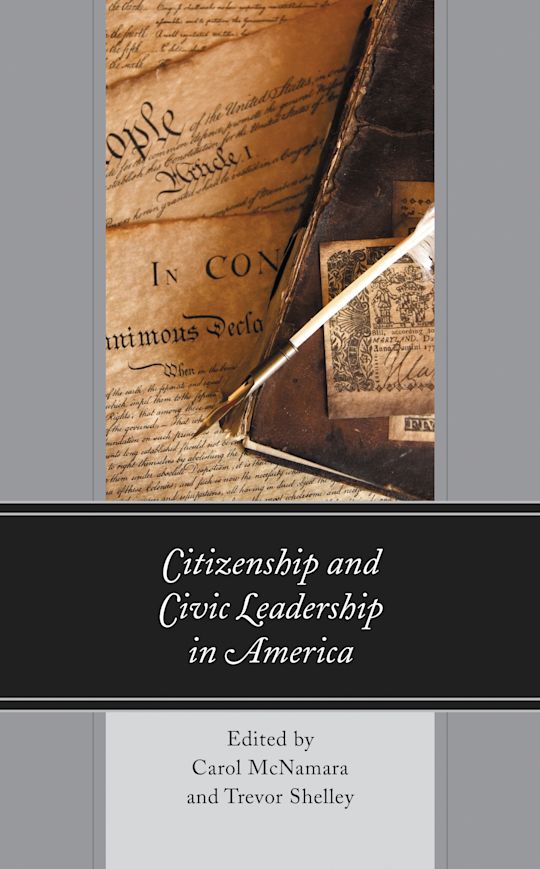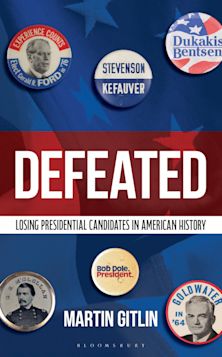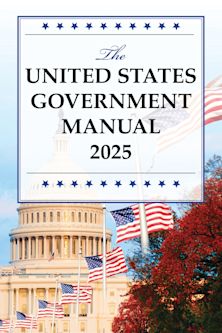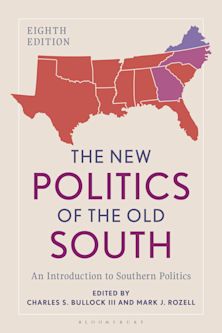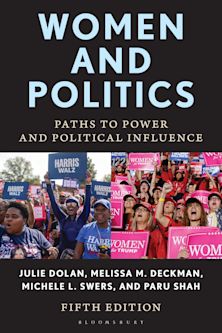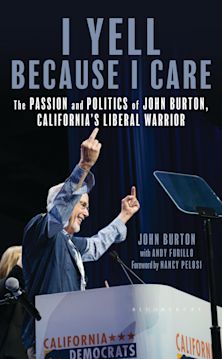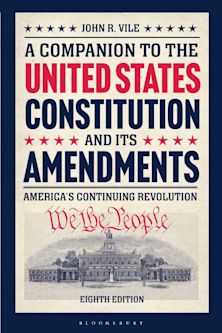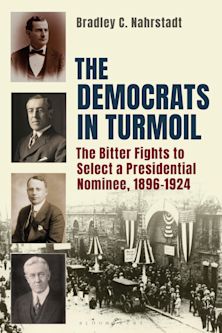- Home
- ACADEMIC
- Politics & International Relations
- American Government and Politics
- Citizenship and Civic Leadership in America
Citizenship and Civic Leadership in America
Carol McNamara (Anthology Editor) , Trevor Shelley (Anthology Editor) , Susan McWilliams Barndt (Contributor) , Christopher Caldwell (Contributor) , Susan Collins (Contributor) , Elizabeth Corey (Contributor) , Shikha Dalmia (Contributor) , Angela D. Dillard (Contributor) , Tomás Jiménez (Contributor) , Kurt Lash (Contributor) , Peter Levine (Contributor) , Glenn C. Loury (Contributor) , Rich Lowry (Contributor) , Wilfred M. McClay (Contributor) , Carol McNamara (Contributor) , Peter C. Meyers (Contributor) , Henry Olsen (Contributor) , Clifford Orwin (Contributor) , Trevor Shelley (Contributor) , Rogers M. Smith (Contributor) , Henry Thomson (Contributor) , Ann Ward (Contributor) , Greg Weiner (Contributor) , Michael Zuckert (Contributor)
Citizenship and Civic Leadership in America
Carol McNamara (Anthology Editor) , Trevor Shelley (Anthology Editor) , Susan McWilliams Barndt (Contributor) , Christopher Caldwell (Contributor) , Susan Collins (Contributor) , Elizabeth Corey (Contributor) , Shikha Dalmia (Contributor) , Angela D. Dillard (Contributor) , Tomás Jiménez (Contributor) , Kurt Lash (Contributor) , Peter Levine (Contributor) , Glenn C. Loury (Contributor) , Rich Lowry (Contributor) , Wilfred M. McClay (Contributor) , Carol McNamara (Contributor) , Peter C. Meyers (Contributor) , Henry Olsen (Contributor) , Clifford Orwin (Contributor) , Trevor Shelley (Contributor) , Rogers M. Smith (Contributor) , Henry Thomson (Contributor) , Ann Ward (Contributor) , Greg Weiner (Contributor) , Michael Zuckert (Contributor)
You must sign in to add this item to your wishlist. Please sign in or create an account
Description
The purpose of this volume is to discuss the concept of citizenship—in terms of its origins, its meanings, and its contemporary place and relevance in American democracy, and within a global context. The authors in this collection wrestle with the connection of citizenship to major tensions between liberty and equality, dynamism and stability, and civic disagreement and social cohesion. The essays also raise fundamental questions about the relationship between citizenship and leadership, and invite further reflection on the features of citizenship and civic leadership under the American Constitution. Finally, this collection offers various suggestions about how to revitalize citizenship and civic leadership through an education that is conducive to a renewal of American civic practices and institutions.
Table of Contents
Chapter 1: Aristotle on Citizenship, the Common Good, and Human Happiness by Susan D. Collins
Chapter 2: On Liberal Citizenship by Michael Zuckert
Chapter 3: Fragmentary Wholes: Rousseau on Citizenship by Clifford Orwin
Chapter 4: “Is There No Virtue Among Us?” James Madison and the Office of the American Citizen by Greg Weiner
Chapter 5: Virtue and Self-Government: Reflections on the Compatibility of 21st American Character and the Demands of Self-Government by Henry Olsen
Chapter 6: A Political Science of Mores: Tocqueville on Citizenship and Civic Leadership by Trevor Shelley
Chapter 7: The Origins of the Fourteenth Amendment's Citizenship Clauses by Kurt Lash
Chapter 8: American Citizenship and the Constitution: The Fourteenth Amendment as Hinge and Bridge by Rogers M. Smith
Chapter 9: “So terrible among men”: Montesquieu and Hamilton on the Judicial Power and National Citizenship by Ann Ward
Chapter 10: Nationalism and Citizenship by Rich Lowr
Product details
| Published | Mar 14 2022 |
|---|---|
| Format | Ebook (PDF) |
| Edition | 1st |
| Extent | 1 |
| ISBN | 9781978782167 |
| Imprint | Lexington Books |
| Series | Political Theory for Today |
| Publisher | Bloomsbury Publishing |
About the contributors
Reviews
-
This scholarly collection of 22 essays focuses on the origin, prerequisites, and challenges of citizenship in the US. Though many are political theorists, the range of authors in this collection is quite broad. They do not all agree in terms of definitions, applications, and/or prescriptions, and the book does not attempt to bring about consensus—other than asserting the importance of citizenship in a democratic republic…. [T]he book has many “Aha” moments in which the authors provide new insights, applications, and/or data. In many cases, contemporary situations and applications flesh out theoretical premises. By and large, the essays, which emanated from a conference, are stand-alone contributions that could serve as the basis for academic analysis and discussion. Recommended. Graduate students, faculty, and researchers.
Choice Reviews
-
The decline of citizenship and civic leadership is often lamented but rarely seriously addressed. This book takes on this crucial matter with the seriousness and analytic incisiveness it deserves. The list of authors includes many of the best writers who think about citizenship and leadership.
Marc Landy, Boston College
-
What is a citizen? In this bountiful gathering of essays, Aristotle’s question is answered, analyzed, and made timely. Readers can expect a variety of outlook, erudition, and topic, with inspiration from the ancients and application to us uncertain moderns. Here is philosophy not self-absorbed but in its most generous aspect.
Harvey C. Mansfield, Harvard University
-
Citizenship and Civic Leadership in America is a much-needed book for our politically polarized age. What we discover is that for democracy to work, it cannot rely upon the political class alone. All citizens must engage in the robust conversation about what constitutes citizenship, who belongs to it, and what does it mean. This book introduces the reader to do this.
VoegelinView

ONLINE RESOURCES
Bloomsbury Collections
This book is available on Bloomsbury Collections where your library has access.








